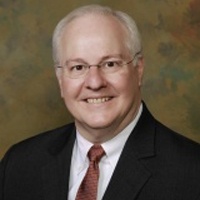Oberlin Credit & Debt Lawyer, Louisiana
William S Sandoz
✓ VERIFIEDBankruptcy & Debt, Collection, Credit & Debt, Estate, Wills & Probate
W. Simmons "Sim" Sandoz – the fourth-generation family attorney – who upon graduating from Loyola University Law School of New Orleans in 1977, jo... (more)
Morley Chenail Diment
✓ VERIFIEDBankruptcy & Debt, Credit & Debt, Tax
Specializing in navigating the complex legal issues present in consumer and corporate asset & debt cases. Our firm assists clients both statewide and ... (more)
J. David Andress
✓ VERIFIEDBankruptcy & Debt, Consumer Protection, Credit & Debt, Bankruptcy, Collection
J. David Andress is a 1999 graduate of LSU, where he earned a Bachelor of Science degree in Microbiology and a Bachelor of Arts degree in History. He... (more)
Van Clifton Seneca
Commercial Real Estate, Insurance, Credit & Debt, Personal Injury
Status: In Good Standing Licensed: 35 Years
Van Clifton Seneca
Insurance, Personal Injury, Credit & Debt, Commercial Real Estate
Status: In Good Standing Licensed: 19 Years
Van Clifton Seneca
Insurance, Personal Injury, Credit & Debt, Commercial Real Estate
Status: In Good Standing Licensed: 35 Years
Jason Blake Boudreaux
Litigation, Employee Rights, Credit & Debt, Personal Injury
Status: In Good Standing
Tracy P Curtis
Employee Rights, Insurance, Credit & Debt, Personal Injury
Status: In Good Standing Licensed: 32 Years




